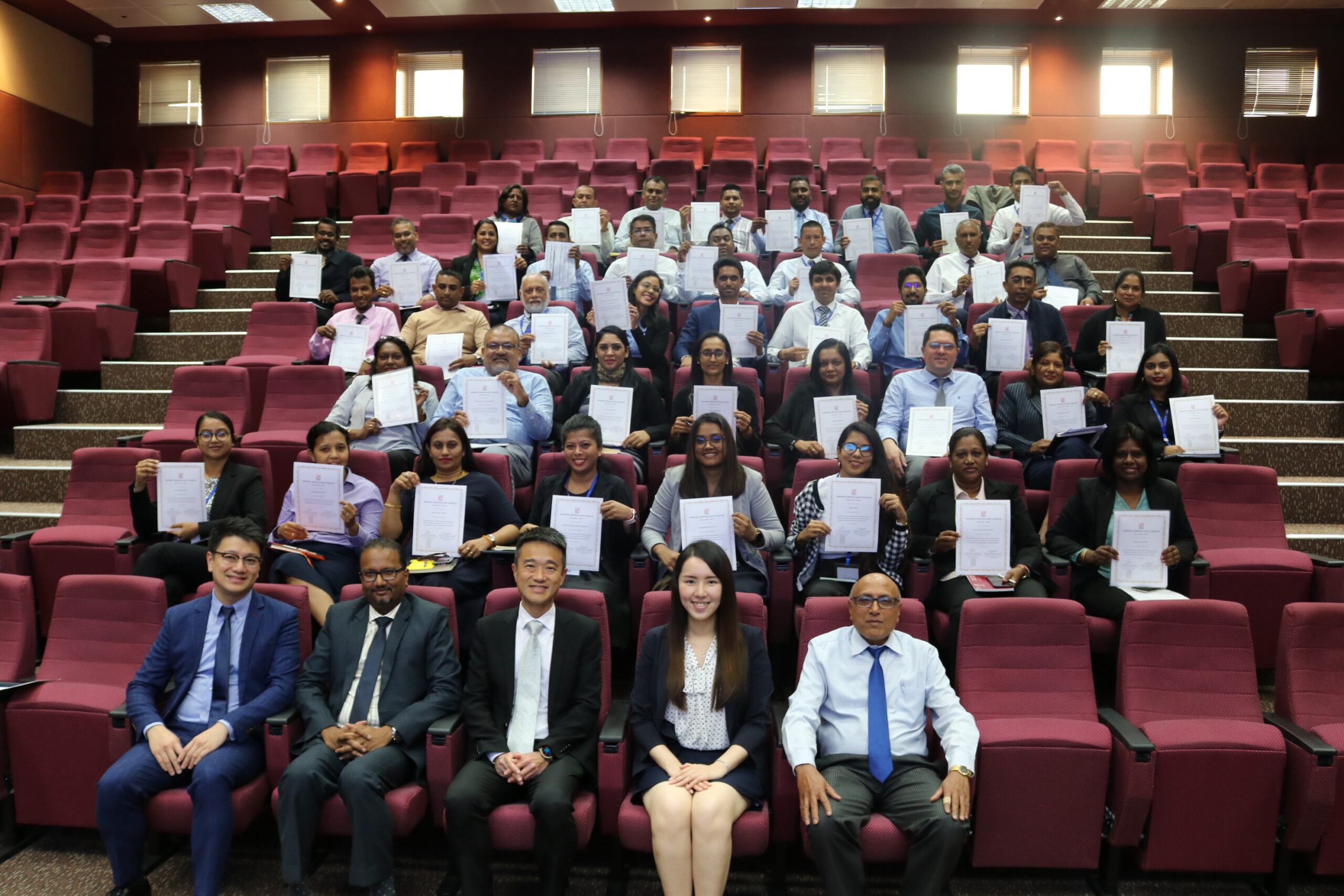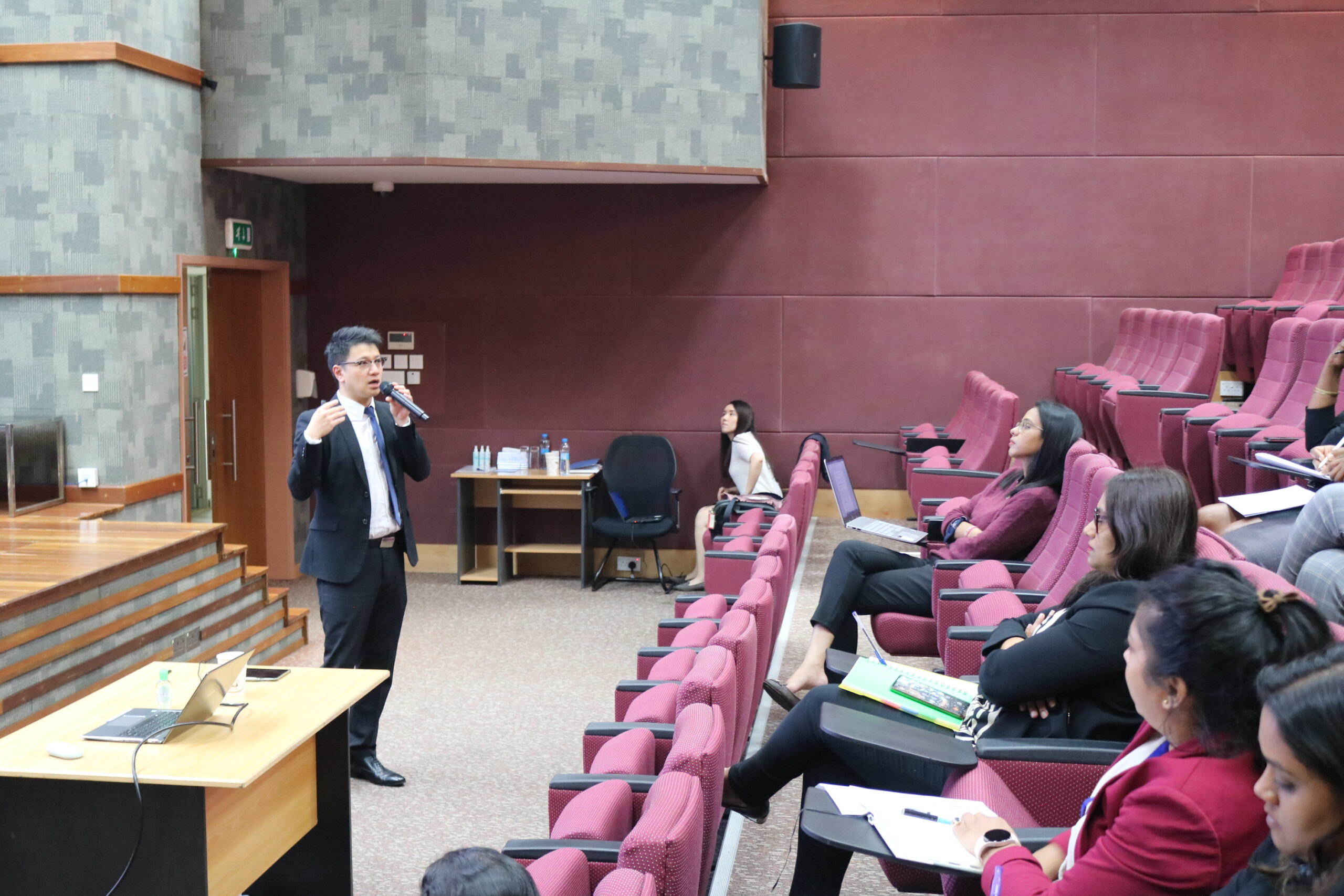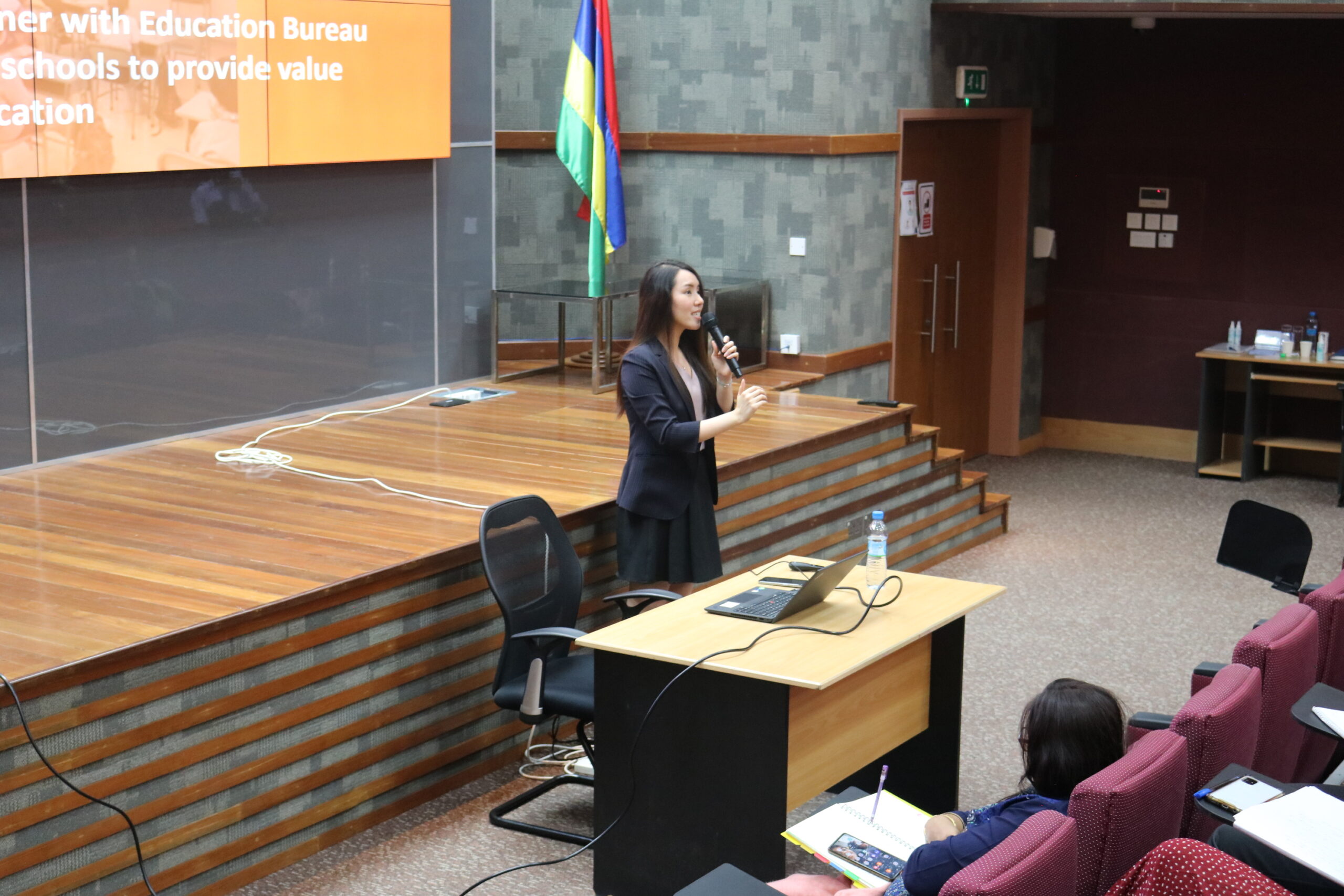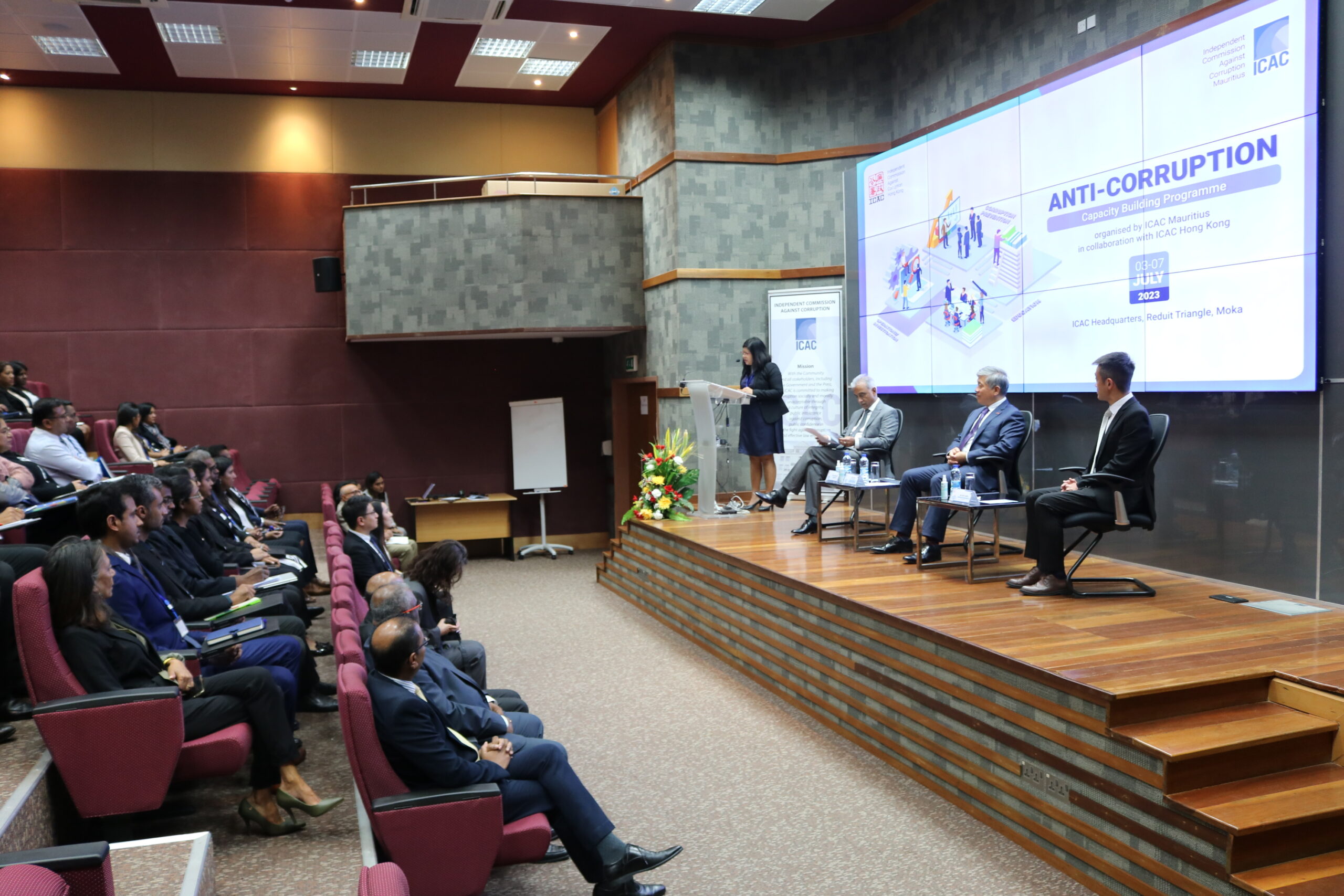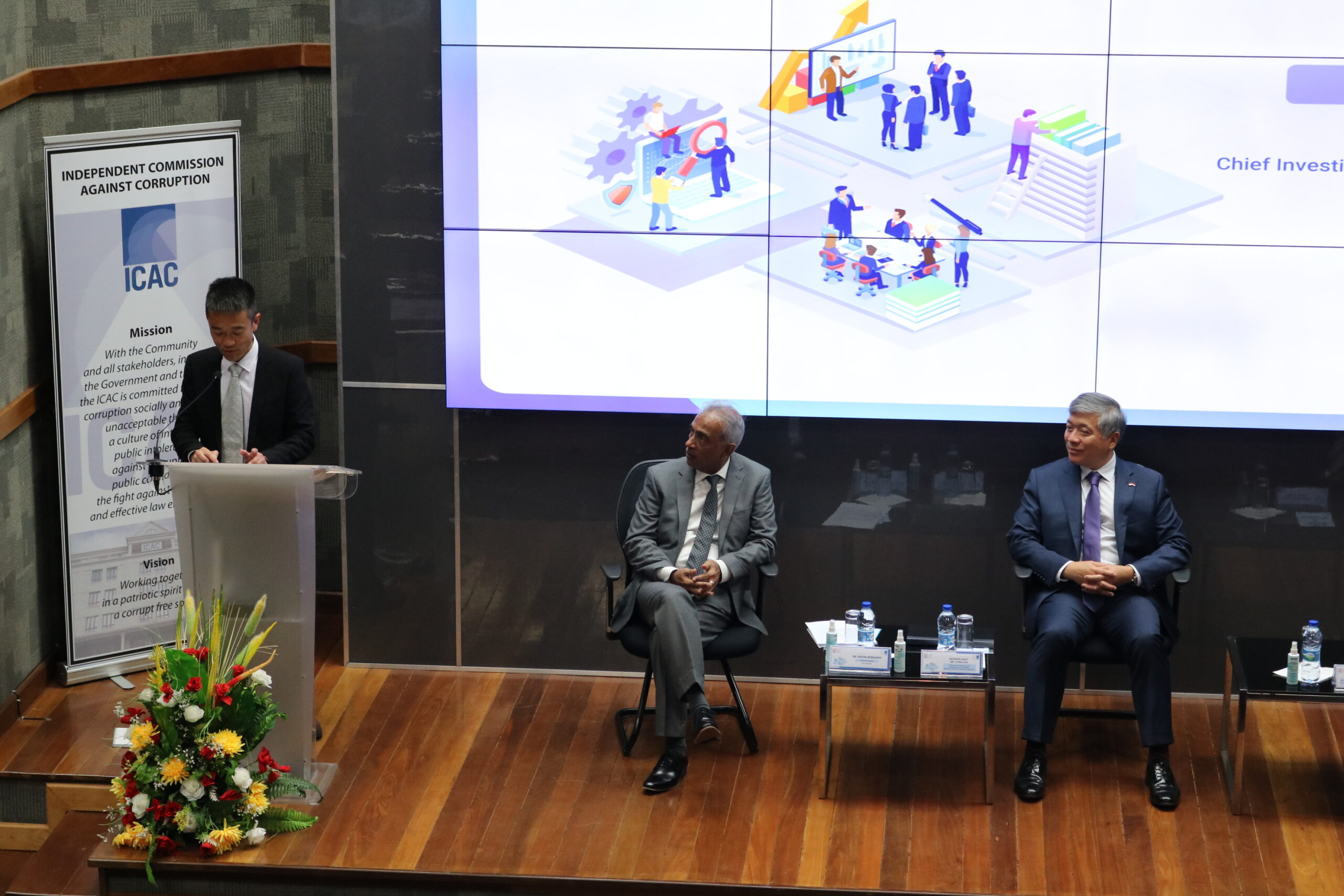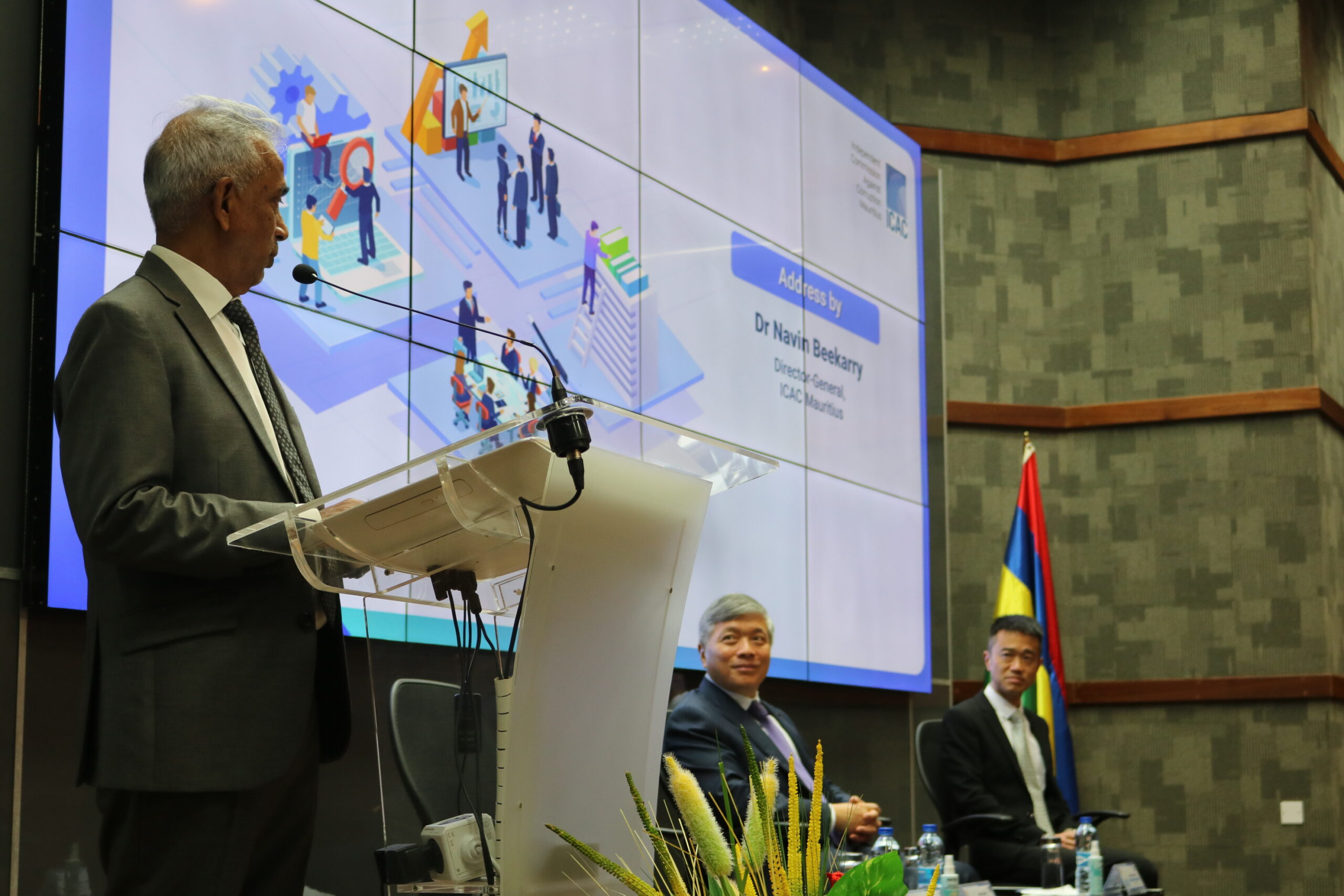Anti-Corruption Capacity Building Programme – organised by ICAC Mauritius in collaboration with ICAC Hong Kong, Special Administrative Region
![Picture1[1]](https://www.icac.mu/wp-content/uploads/2023/07/Picture11.jpg)
Group photo of H.E. Mr Liying Zhu, Ambassador Extraordinary and Plenipotentiary of the People’s Republic of China to the Republic of Mauritius, Dr Navin Beekarry, Director General of the ICAC, representatives from ICAC Hong Kong and participants
A capacity building programme for ICAC officers was organised from 3rd to 7th July 2023 in collaboration with ICAC Hong Kong. Since 2002, ICAC Mauritius has maintained a strong collaborative relationship with ICAC Hong Kong and several joint initiatives have been undertaken. The capacity building programme was organised in the spirit of renewing cooperation and meeting emerging challenges in the fight against corruption. It is also to be noted that both institutions are executive members of the International Association of Anti-Corruption Authorities (IAACA). IAACA is an independent and non-political anti-corruption organisation with the mandate to promote effective implementation of the United Nations Convention Against Corruption (UNCAC) and assist anti-corruption agencies worldwide in the prevention of corruption. Both ICAC Mauritius and ICAC Hong Kong actively participate in various initiatives and projects at local and international level which aim to further implement provisions of the UNCAC by State Parties.
The programme was attended by over 50 ICAC officers from the legal, investigation, prevention and education divisions. Officers of the Declaration of Assets Unit also formed part of the training. It was facilitated by seasoned officers from ICAC Hong Kong, namely Mr. Ricky Cheuk, Chief Investigator of the Operations Department; Ms. Cindy Fung, Senior Youth and Education Officer of the Community Relations Department; and Mr. Eric Ng, Senior International Cooperation Officer of the International Cooperation and Corporate Services Department.
The training programme covered amongst others, covert investigations, preparation of file of evidence, digital forensic examinations, corruption prevention strategies, creative use of new technology and social media in the fight against corruption.
The training was intensive and interactive and enabled the sharing of knowledge, skills, and experience between the two institutions. To further strengthen partnership between the two sister organisations, similar training programmes are envisaged in the near future namely in the field of digital communication, corruption risk management, implementation of education strategies and cross border investigation.
